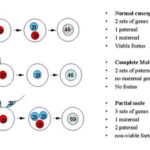
Let’s be honest, friends, pregnancy isn’t all sunshine and rainbows. Sure, there’s the undeniable magic of witnessing a tiny miracle growing inside your partner, but there are also those not-so-glamorous moments that leave you feeling a little…well, helpless. One of those moments, for me, was the nightly battle against the dreaded pregnancy leg cramp monster.
It was 2 AM when I awoke to the sound of my wife whimpering in pain. As my eyes adjusted to the darkness, I saw her lying there next to me, blankets twisted, teeth gritted, face twisted in agony. Her leg was locked in a rictus, calf muscle bulging and hard as stone. She was in the throes of a wicked charley horse.
“Honey, what’s wrong?” I asked, immediately realizing it was a stupid question. Clearly she was battling a vicious leg cramp. She just moaned and massaged her knotted calf. I leaped into action, trying to ease her suffering.
Related: How To Sleep With Rib Pain During Pregnancy
Attempting to Help
I’ll never forget the first night the leg cramps started. My wife was about 5 months pregnant when she woke up around 3 AM crying in pain. Her calves were knotted and cramping intensely. I jumped out of bed, turned on the lights, and rushed to her side. As she writhed in agony, I tried massaging and stretching her muscles to release the tension. I got an ice pack and heating pad to see if temperature would help. After an hour of rubbing, ice, and heat, the pain finally started to subside. But it left us both exhausted and worried if this would keep happening.
Related: Pregnancy Farts 101: How To Relieve Pregnancy Gas Pains
The Pain Persists
Night after night, the searing leg cramps continued. No matter how much I massaged and stretched her calves, it only provided temporary relief before the stabbing pains returned with a vengeance. She would cry out in agony, even shedding tears during the worst bouts. I felt so helpless watching her suffer through the cramps. We tried heating pads, ice packs, magnesium supplements, electrolyte drinks – anything we could research online. While some remedies seemed to briefly ease her discomfort, the leg cramps always came roaring back within an hour or two.
Seeing my partner writhing in pain through the night made me feel powerless. I desperately wanted to make the cramps go away for good, but they persisted no matter what we tried. The lack of sleep from these recurring fits left us both exhausted the next day. Though I did my best to hide my frustration, inside I was slowly losing hope that we would ever find a solution. But I knew I had to keep trying, if only to provide whatever fleeting comfort I could. We were determined to get to the bottom of these unwavering leg cramps.
Related: 16 Causes of Pelvic Pain During Pregnancy and How to Get Relief?
Seeking Answers
After several sleepless nights tending to my wife’s severe leg cramps, I knew I had to find some solutions. Her pains were becoming more frequent and lasting longer, sometimes up to 10 agonizing minutes. I hated seeing her contort her face and grit her teeth as her muscles contracted against her will.
I started researching online, desperate to find what was causing these unwelcome nighttime visitors. Mayo Clinic and WebMD offered some clinical advice about stretching and hydration. Parenting forums provided anecdotes from moms who had been through this too. Their late-night leg cramp survival tips became my gospel.
In addition to strangers on the internet, I asked everyone I knew for cramp-beating wisdom. My mother-in-law suggested magnesium supplements. A dad from playgroup swore by compression socks. My coworker, who had twin boys last year, reminisced about his wife’s leg cramps with a grimace. “The only cure is time,” he told me solemnly.
Armed with crowd-sourced cramp advice and the strongest desire to help my wife, I forged ahead on operation kick-those-cramps-to-the-curb. The key was finding what remedy worked for her body. We would try them all if we had to.
Related: Pregnancy Gas Pains VS. Contractions
Conquering the Pregnancy Leg Cramp Monster
Lifestyle Changes

I was determined to find ways to prevent the leg cramps without resorting to medication if possible. After doing some research online and asking her ob-gyn, we implemented several lifestyle changes that seemed to help reduce the frequency and severity of the leg cramps.
Diet – We focused on getting more magnesium and potassium in her diet, as deficiencies in these minerals are linked to muscle cramps. Things like leafy greens, bananas, avocados, nuts, yogurt, and fish can help. We also cut back on inflammatory foods.
Hydration – Staying hydrated is crucial during pregnancy, so she aimed for at least eight 8-ounce glasses of water daily. Dehydration exacerbates muscle cramps. She drank a big glass of water right when a cramp started which sometimes helped shorten its duration.
Rest – Getting adequate sleep is vital, so we prioritized a consistent sleep schedule. Restorative yoga poses before bed helped prepare her body for rest. Taking short breaks to put her feet up during the day gave her legs a break.
Exercise – Light exercise like walking, swimming, or prenatal yoga can improve circulation and muscle function without overexerting. But intense workouts close to bedtime can backfire and lead to cramps, so finding the right balance of activity was key.
Related: Can Pregnant Women Park In Handicap Spaces
Medical Intervention
After trying various home remedies and lifestyle changes, I realized the leg cramps weren’t going away completely. Though they were less frequent, when they did strike, the pain was still excruciating for my partner.
We decided it was time to talk to her doctor about medical solutions like supplements or prescription medications that could provide extra relief. The doctor recommended trying an over-the-counter magnesium supplement first, since magnesium deficiency is a common cause of muscle cramps during pregnancy.
She started taking a daily magnesium supplement, and within about two weeks, we noticed a dramatic difference. The leg cramps were less painful when they did occur, and she was getting them only occasionally now instead of nightly. The magnesium seemed to be doing the trick!
Of course, always consult your own doctor before trying any new supplements or medications during pregnancy. But in our case, an easy magnesium supplement made a world of difference and finally conquered those miserable muscle cramps!
Related: Compassionate Childbirth Injury Attorney Help
What Worked?

After many sleepless nights and frustrating attempts to ease my partner’s leg cramps, we finally found a solution. It took patience and persistence, but making a few simple changes provided her the relief she desperately needed.
First, we realized the importance of proper hydration. My partner began drinking more water and less caffeine and alcohol, which seemed to help reduce the frequency and severity of the leg cramps. She also started taking magnesium supplements, which can help alleviate muscle tightness.
Stretching her legs and feet before bed made a noticeable difference as well. Just taking 5-10 minutes to do some gentle stretches and massages helped her muscles relax. Switching to a supportive pregnancy pillow was another simple change that improved her comfort at night.
While these self-care measures brought some relief, talking to her doctor led us to solutions that really worked. He recommended trying compression socks to improve circulation in her legs, which she now wears daily. But the real game-changer was when he prescribed magnesium glycinate. This supplemental form of magnesium is highly absorbable, and within a few days her leg cramps were dramatically reduced.
I’m so glad we finally found an effective solution. While pregnancy leg cramps can be frustrating and painful, there are many options to try for relieving those relentless Charlie horses! The most important thing is listening to your partner and working together to find what works best for her body.
Related: What Are Common Discomforts During Pregnancy?
Advice for Partners
Supporting your pregnant partner through leg cramps can be challenging, but a few key strategies make a huge difference. When the leg cramps strike, remain calm and patient. Getting frustrated will only stress out your partner more. Speak in a soft, soothing voice and ask what you can do to help – retrieving a heating pad, pillow, water, or snack. Avoid minimizing her pain or doubting how bad it feels. Leg cramps can be extremely painful and validating her experience provides comfort.
Rubbing and massaging the cramped muscle may provide relief. Apply firm but gentle pressure and ask for feedback on what helps most. Try warm compresses or ice packs on the area as well. Getting into a comfortable position can also alleviate cramping. Help lift and adjust her legs into positions that stretch the muscle or relax it. Elevating the legs on some pillows, moving to the bathroom floor, or even taking a warm bath have worked for some. Be ready to try different solutions.
Prevention is also key. Make sure she stays hydrated and eats foods higher in calcium and magnesium like leafy greens, nuts, and dairy. Stretching before bed and getting enough potassium helps too. Avoid pointing fingers or blaming if she gets a cramp. Simply help find a remedy and support her through the discomfort. With patience and care, you’ll conquer the pregnancy leg cramp monster together.
Related: Inside the Mind of a Pregnant Woman: A Hilarious Peek
When to Seek Help
Leg cramps can be a common nuisance during pregnancy that many write off as an unavoidable symptom. However, severe or persistent leg cramps can sometimes be a sign of an underlying issue that requires medical attention. Here are some warning signs to watch out for:
- Cramps that cause visible swelling or discoloration in the leg or foot. This could indicate a blood clot or circulatory issue.
- Cramps that do not subside after stretching and massaging the muscle. Persistent and severe pain lasting over 10 minutes could signal nerve damage or muscle strain.
- Cramps accompanied by numbness or tingling in the leg or foot. This may be a pinched nerve or compressed artery.
- Muscle spasms and cramps in both legs, not just one. Generalized and widespread leg cramps can be a sign of mineral deficiency or dehydration.
- Cramps severe enough to limit mobility or normal function. Extremely painful cramps preventing sleep, standing, or walking require medical evaluation.
- Cramps accompanied by fever, chills, or nausea. These additional symptoms may indicate an infection.
Your partner’s pregnancy leg cramps are likely just par for the course. But it’s always better to err on the side of caution. Connect with your doctor if the cramps seem abnormal or overly severe. Catching circulatory or neurological issues early can prevent complications. Don’t hesitate to call if you have any concerns – assuring mom and baby’s wellbeing is top priority.
Related: 9 Hidden Signs of Vitamin D Deficiency in Winter
Stop Leg Cramps in Their Tracks During Pregnancy

The Takeaway
As the partner of someone going through pregnancy, it’s natural to feel helpless when they are in discomfort or pain. Leg cramps can disrupt sleep and strain the relationship, but having gone through this challenge myself, I have some key takeaways I hope will empower other partners:
- Don’t underestimate the agony of leg cramps. My partner helped give me perspective on just how painful they can be. Have compassion and patience as you work together to find solutions.
- Take an active role in researching remedies and lifestyle changes. While the pregnant partner’s doctor should be consulted, you can hunt down options, test different approaches, and be their advocate.
- Stay positive through the process. Keep reassuring your partner and appreciating their strength. A little humor and laughter can work wonders too.
- Celebrate small victories. If you find even a slight improvement through stretching, hydration, or supplements, build on it. Marking progress keeps motivation high.
- Speak up if you feel overwhelmed. Caring for your pregnant partner can be physically and emotionally draining. Ask for help from family and friends when needed.
- Keep the big picture in mind. The leg cramps are temporary, and soon you’ll be holding your new baby. Better rest and comfort are just around the corner.
You’ve got this! With teamwork, creativity and compassion, you and your partner will get through this challenge together. The reward of your new family makes it all worthwhile.












